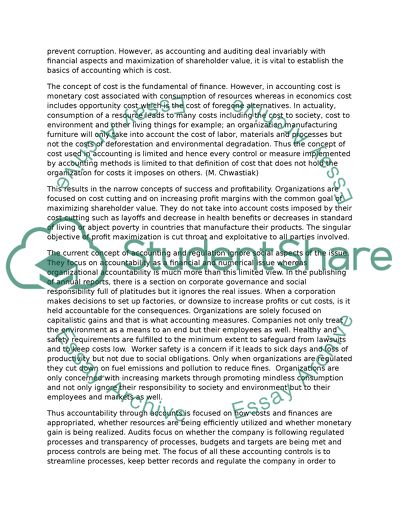Cite this document
(“Accountability, representation & control Essay Example | Topics and Well Written Essays - 1250 words”, n.d.)
Retrieved from https://studentshare.org/finance-accounting/1404907-accountability-representation-control
Retrieved from https://studentshare.org/finance-accounting/1404907-accountability-representation-control
(Accountability, Representation & Control Essay Example | Topics and Well Written Essays - 1250 Words)
https://studentshare.org/finance-accounting/1404907-accountability-representation-control.
https://studentshare.org/finance-accounting/1404907-accountability-representation-control.
“Accountability, Representation & Control Essay Example | Topics and Well Written Essays - 1250 Words”, n.d. https://studentshare.org/finance-accounting/1404907-accountability-representation-control.


